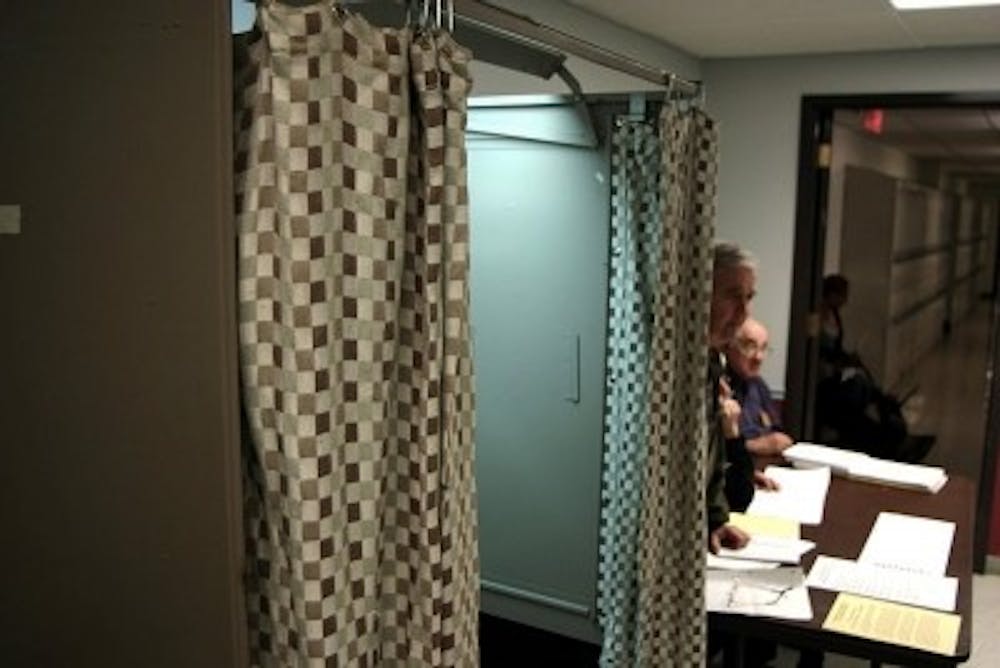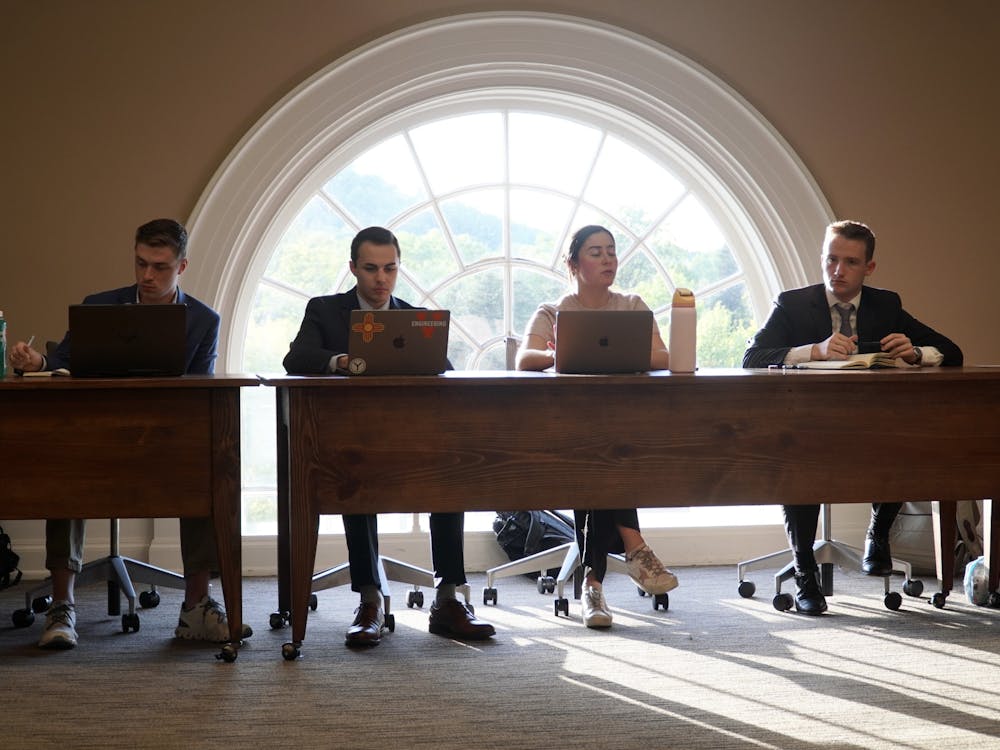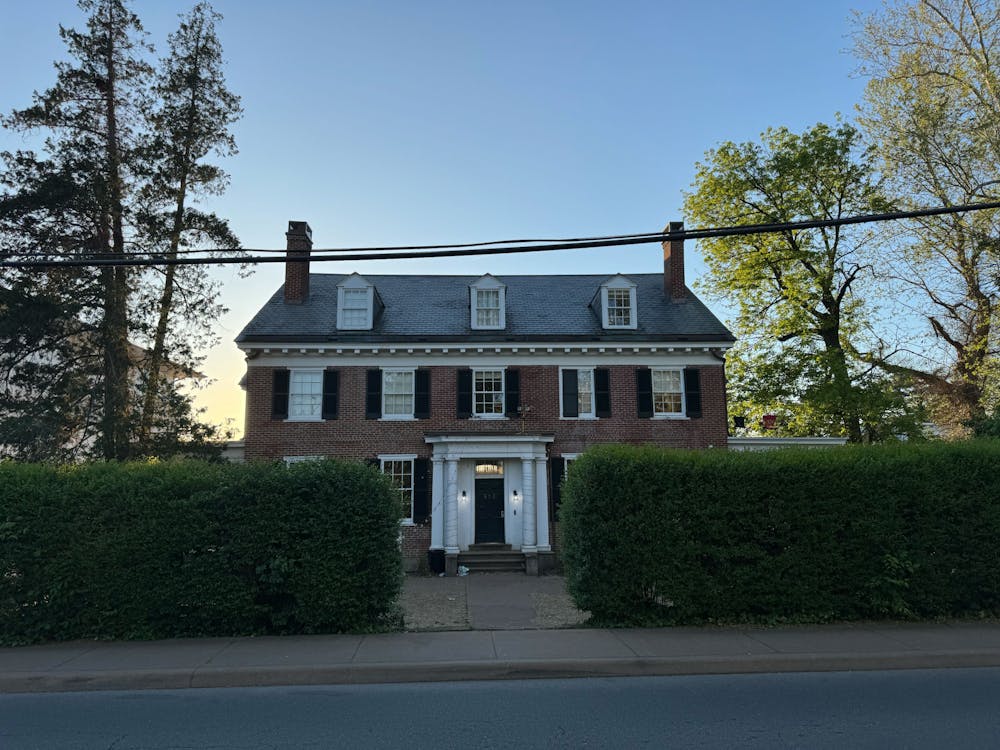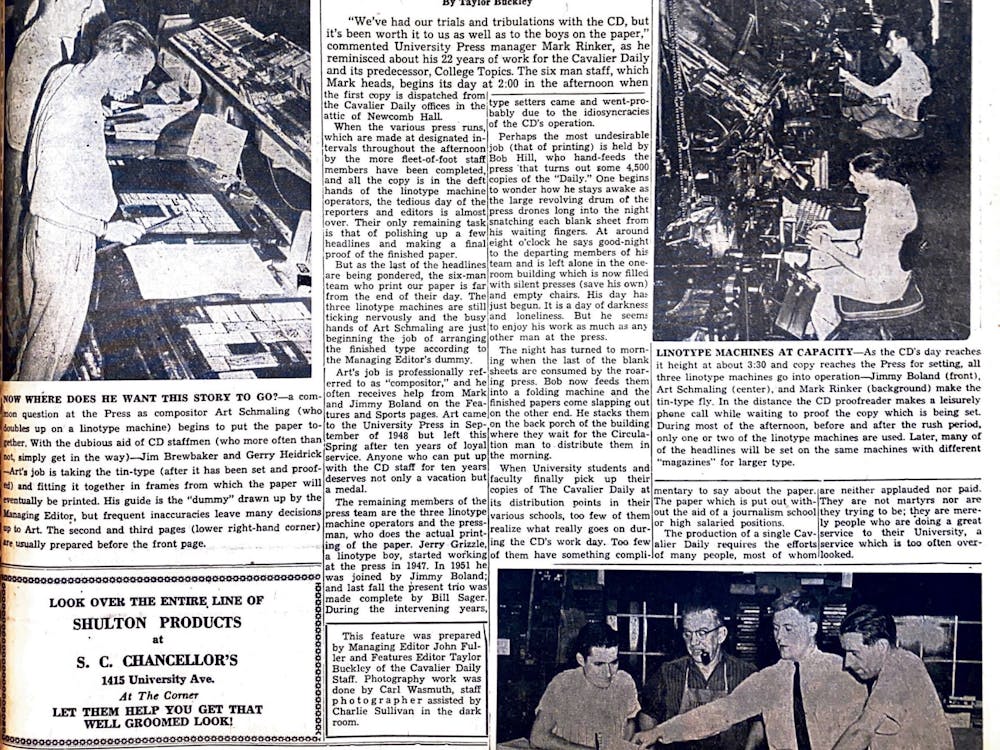Virginia voters flocked to the polls Tuesday to cast their votes in the open primary. The Democratic race was expected to be tight, while the Republican race was expected to be uncompetitive. For both races, the opposite of the original assumptions turned out to be true.
Only 17 percent of registered Virginia voters turned out to vote in the gubernatorial primary, according to a Virginia Public Access Project graphic. Of those who did vote, 59.7 percent voted in the Democratic primary and 40.3 percent voted in the Republican primary.
Despite being predicted to take the primary in a landslide, former RNC chair Ed Gillespie barely eked out a win against former Virginia chairman of the Trump campaign, Corey Stewart. Gillespie won with 160,040 votes, or 43.71 percent of Republican votes cast. Stewart was short by a few thousand, at 155,707 votes, or 42.53 percent of Republican votes cast.
Rising third-year College student Adam Kimelman, chair of the College Republicans, said this disparity could be attributed to several reasons, the first of which was polling predictions.
“Polling said it wasn’t going to be super competitive, and then I think that probably discourages a lot of people from voting,” Kimelman said. “Corey Stewart had a very solid base of support. People were going to come out no matter what. And I think a lot of Ed Gillespie supporters probably said, ‘well he’s going to win by 20 points, like every single poll said he would, I don’t need to go out and vote, I’ll just vote for him in the general.’”
Kimelman said recent statements from Stewart regarding Gillespie’s beliefs could have driven issue-based voters to the polls. Kimelman said Stewart falsely claimed Gillespie sought to remove historical statues and supported allowing women to have late-term abortions.
“Voters who don’t do a ton of research heard that and believed that, and those were a couple of issues that people who are going to go vote in the primaries really matter to them,” Kimelman said. “The last couple of weeks by Corey Stewart just came out of nowhere.”
On the Democratic side, turnout was much higher. Lt. Gov. Ralph Northam bested former U.S. representative Tom Perriello with 303,433 votes to 239,365 votes, capturing the Democratic gubernatorial nomination with 55.9 percent of primary votes. Polls predicted the race would be much closer.
“Getting primary support is really difficult,” rising second-year College student Virginia Chambers, University Democrats spokesperson, said. “But clearly people are very willing to turn out on a ridiculously hot and humid day because they realize how much the process [matters], and what it can be like if you don’t participate and if someone treacherous gets elected.”
According to Chambers, comparisons of the Northam versus Perriello matchup to that of former Secretary of State Hillary Clinton versus Sen. Bernie Sanders (I-Vt.) for the Democratic presidential nomination in 2016 demonstrated an increased emphasis on Virginia as an indicator of national politics, possibly driving turnout.
““I think [the comparison] does show a lot though that we are kind of talking about Virginia politics in the sphere of national politics, especially since we are an off-year election,” Chambers said. “That may have helped drive ridiculously high turnout this year. I think it also shows the proclivity of national pundits wanting to really look at Virginia as a bellwether for what’s going to happen next.”
Chambers said the University Democrats are looking forward to working with the candidates and are confident about the future of the Democratic party.
“Voters really did show up,” Chambers said. “It was absolutely fantastic. In Charlottesville alone...more than double the people who usually vote voted, and that’s absolutely fantastic. I think it just shows that people … realized that the presidency is not [the only] thing that affects their everyday life.”
Kimelman said the University Democrats and College Republicans plan on collaborating to provide transportation from the Observatory Hill Dining Hall to University Hall on Election Day, Nov. 7. He said he would like to see high turnout and that the College Republicans will be working to get as many students as possible to vote.
“We’re definitely going to try to get 100 percent of our members turning out,” Kimelman said. “If any of our members of the College Republicans don’t vote next semester, I know that at least I will be incredibly sad.





